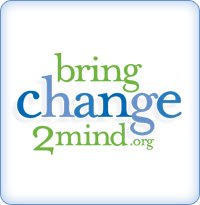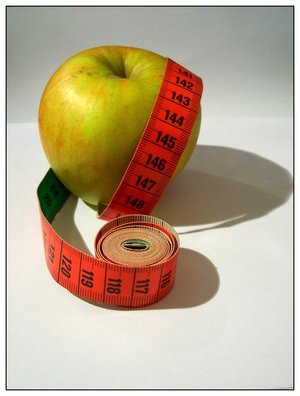When Is It Time To Speak Up?
 Friday, April 2, 2010 at 12:02AM
Friday, April 2, 2010 at 12:02AM Nancy Matsumoto (a freelance journalist who has contributed to the New York Times, Newsweek, Time, etc..) and Marcia Herrin (a nutritionist specializing in eating disorders who founded the Dartmouth College Eating Disorders Prevention, Education and Treatment Program), have co-authored a great book called The Parent's Guide to Eating Disorders. They also have a blog called Eating Disorders and Nutritional News. To read a little more about Nancy and Marcia, follow this link! I wanted to share a recent blog post written by Nancy because I think it is a very authentic post that addresses a topic that people often ask and wonder about. The title of the post is 'Knowing When to Express Concern About a Friend's Eating Disorder.' Follow this link to read it, or you can read it below (copy and pasted).
Knowing when to express concern about a friend's eating disorder
A recent experience reminded me that even when we know what the right thing to do is, it’s still hard to know when to do it. Over the course of the past year, I have become friends with a woman, I’ll call her Jane, in my Japanese language class. I recognized the telltale signs of anorexia in her right away: the hollow cheeks, the clothes hanging off her skeletal frame, the way she liked to bring food for others, but didn’t want to eat much herself.
Later, Jane told me that she did not see herself as too thin, she thought she looked normal, maybe even a little bit heavier than she wanted to be. This, too, is a classic symptom of the body dysmorphic disorder that often accompanies anorexia.
I wondered if I should say something, to express concern and find out if Jane was in treatment. Had I been just half as emaciated as Jane was, I would not have been able to think straight; I would have felt dizzy and probably fuzzy-headed from malnourishment. But Jane’s mind was razor sharp. She was an encyclopedia of kanjicharacters, devoured the finer points of grammar that made my eyes glaze over, and read the appendix of our dry text book for fun.
Although she was always the most prepared person in our class, Jane was also always late to class. I thought she had a job that she couldn’t leave early. Later, she told me that she had no job; the digestive problems caused by her anorexia meant that she simply had to wait until she felt well enough to leave her apartment. Often, she didn’t arrive until the last 20 or 30 minutes of our two-hour class.
Then Jane went away to Florida on vacation. It was sunny and warm there, but she returned with a wretched cold and looked thinner than ever. She looked terrible. “Feel my hands,” she told me and another classmate. Even though our classroom was overheated as usual, her hands were icy cold. Suddenly, she had entered crisis mode. Being in Florida surrounded by friends who were healthy, fit, and enjoyed active, outdoor lives had suddenly made her want those things for herself. She looked in the mirror and for a moment saw how different she looked, how starved and unhealthy the woman who stared back at her was. It was a moment of clarity that lasted long enough for Jane to realize she needed help.
For the first time, Jane also opened up to me and a few others in our class about her eating disorder. She was desperately seeking a treatment center, she told me. Even though all the doctors she spoke to felt she should be hospitalized, she hoped to stay at home and find outpatient treatment. I was scared for her life, and I could tell she was, too. I berated myself for not saying anything earlier. Maybe I could have prevented this sudden and horrible downturn. I knew what was happening to her and I didn’t say anything.
I thought that she would think me too pushy, or a know-it-all. I worried that I would be intruding. After Jane spoke openly about her worries, I was able to refer Jane to Marcia, who then recommended a good psychologist in New York for her to see. When I saw Jane at class yesterday, she told me she liked her therapist but was worried that she would not be able to afford many more treatments. She couldn’t afford to spend the $5,000 out-of-pocket minimum her insurance plan required before it would cover 50 percent of the therapist’s bills. Even paying for half of the treatments would be a stretch.
When I asked Jane today whether it would have offended her if I had spoken up, she told me, “I wouldn’t have reacted negatively, because I know what’s going on with me. I’m not sure that I would have done anything about it; you have to be ready.”
The kind of epiphany she had recently, when she recognized what she looked like and how sick she was, Jane told me, has happened before, although it never lasts. “I want to do something, and then I’ll go into hibernation again,” she said. Two weeks ago she had a phone interview with the Renfrew Center in Pennsylvania, but then decided not to go.
Jane said she wanted so much to be healthy and active but added, “I don’t know how to be active, to sleep and to squeeze food in. I can’t eat because it makes me feel bad, and I’m afraid I will get sick. I’m like a child; I want to be taught to eat again.” Then, she added, “I don’t know if I’m going to make it. If this can help someone else, please write about it.”
I asked Marcia if she thought I had done the wrong thing by waiting to voice my concerns to Jane. Marcia responded, “You have to trust your instincts on when to speak up, and it sounds like you did. I have reminded other concerned friends in similar situations that you can trust your instincts if your motives are pure. We all need to remember that we can't force another adult to take action (without taking legal action first). What Jane needs now is encouragement to hang in there long enough to benefit from treatment. Sometimes this is a good time to suggest or lend a book. Maybe Life Without Ed byJenni Schaefer or, Gaining: The Truth About Life After Eating Disorders, byAimee Liu. Good books can lead to good discussions, too. “
As a nutritionist who often sees eating disorders patients who cannot afford professional treatment and/or have difficulties with insurance issues, Marcia told me, “I have lots of thoughts about this.” The first is that Jane’s dilemma is typical of our insurance system, which slaps large deductibles on eating disorders treatment and follows with inadequate reimbursements. The patient goes without treatment and, in the worst cases, ends up hospitalized in an intensive care unit at upwards of $1,000 a day.
Marcia’s second thought was that it is often hard for patients make recovery their number one priority in life; everything else should be secondary. This is not easy in cases where the patient doesn’t have the complete support of loved ones, however.
Jane’s comment about feeling like a child who needs to learn how to eat again, Marcia noted, is a perfect description of what a good nutritionist can help an eating-disordered patient do, and why seeing a nutritionist or dietitian who specializes in eating disorders is so important.
“Another thing that can be inspiring,” Marcia said, “is to help the other person see that her life is important to others—children, spouses, families, friends, even pets, and to you!”
I will tell Jane that she is important to me, and to our class. I hope that if you are concerned about a loved who is in despair over an eating disorder, you will do the same thing.
Take care,
Nancy
Marcia Herrin and Nancy Matsumoto, co-authors, The Parent’s Guide to Eating Disorders, Gūrze Books, (www.childhoodeatingdisorders.com).



